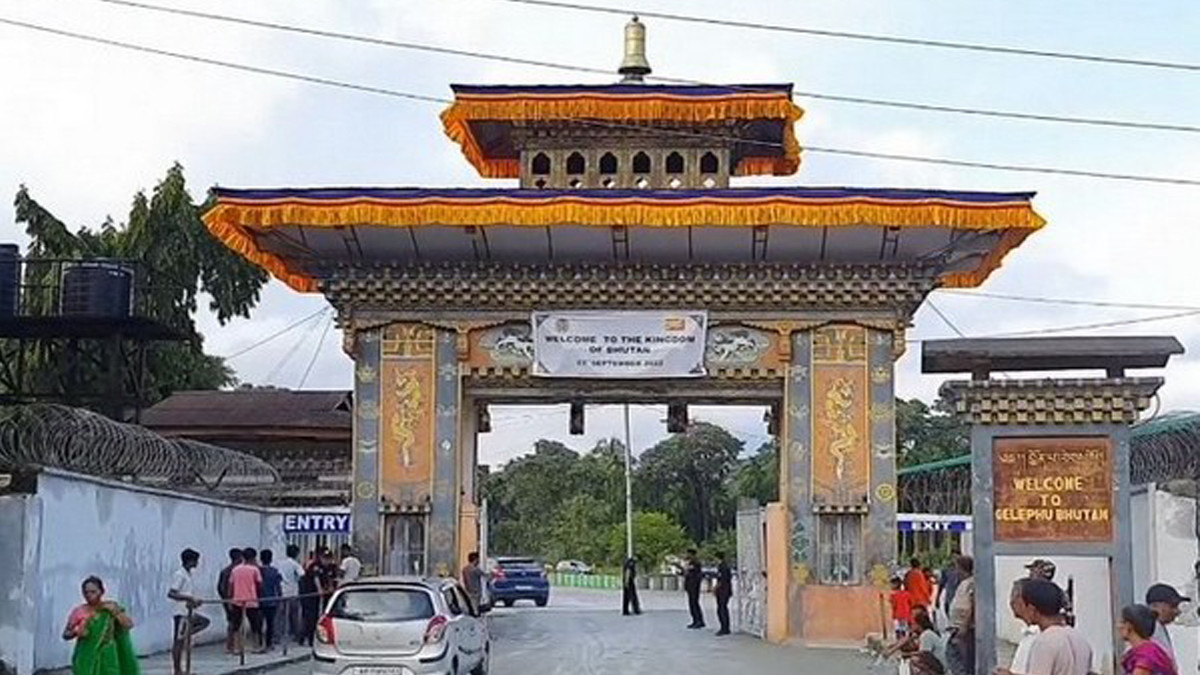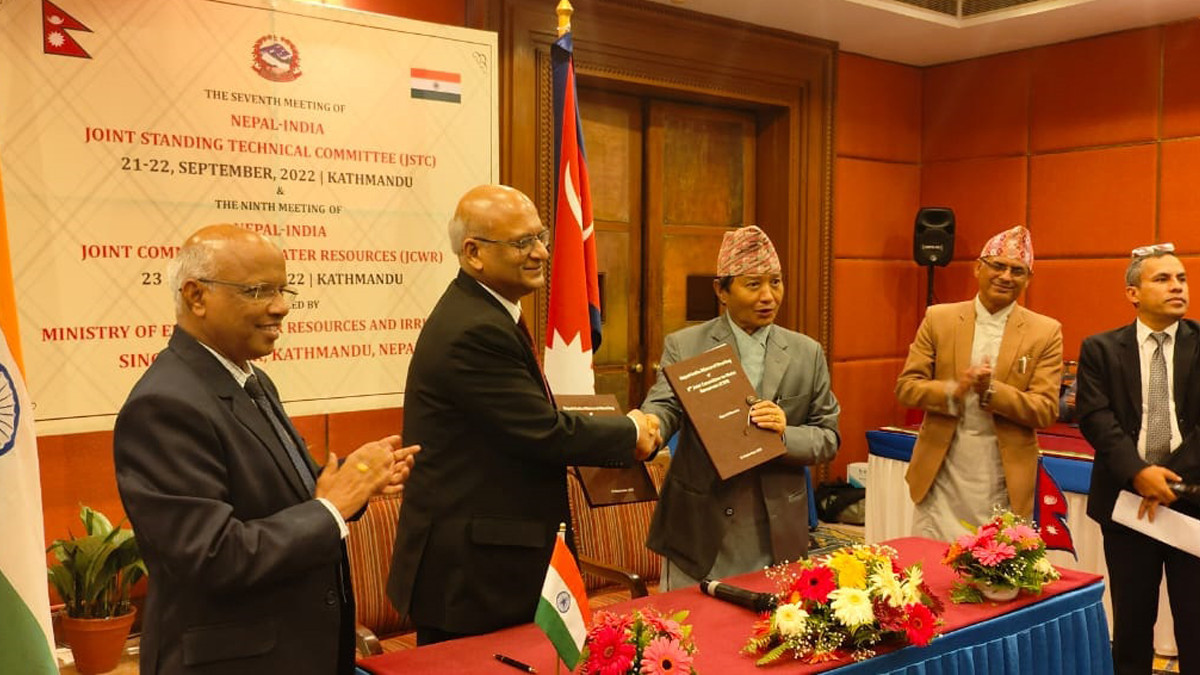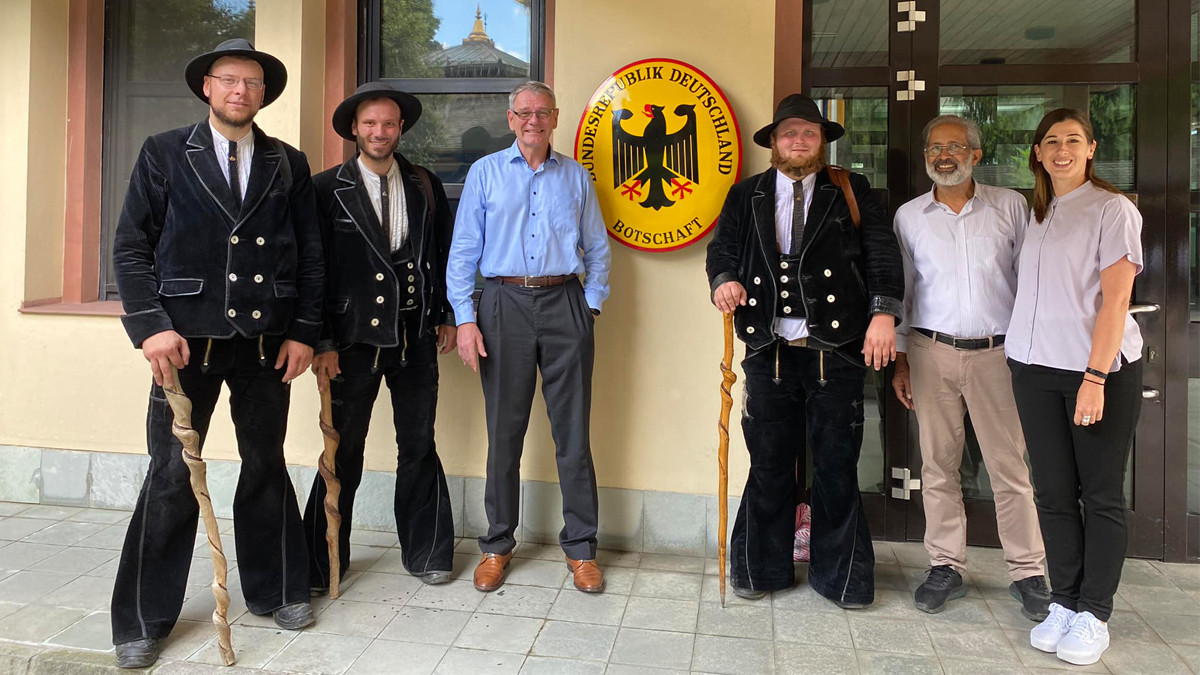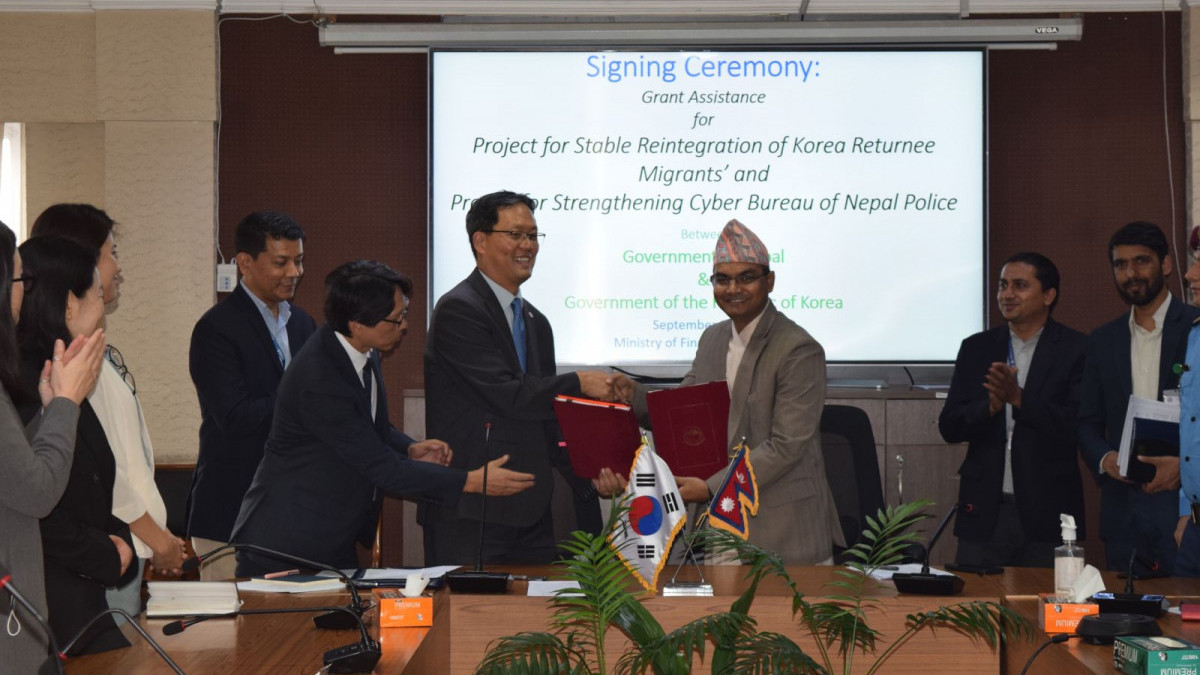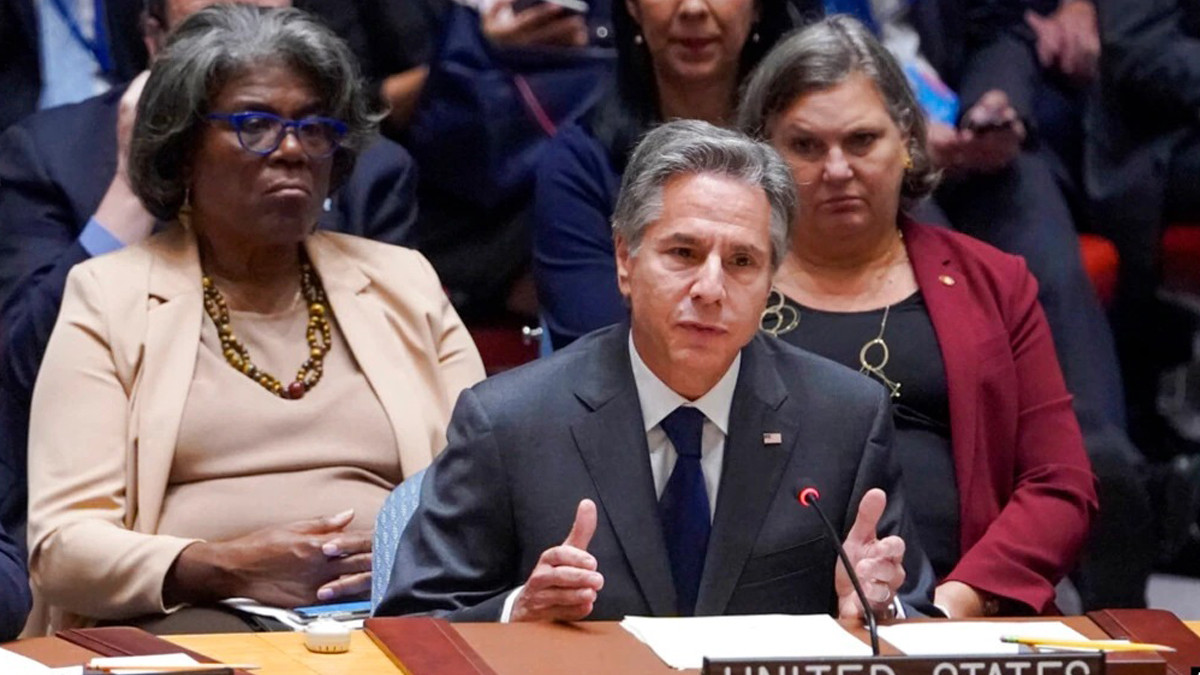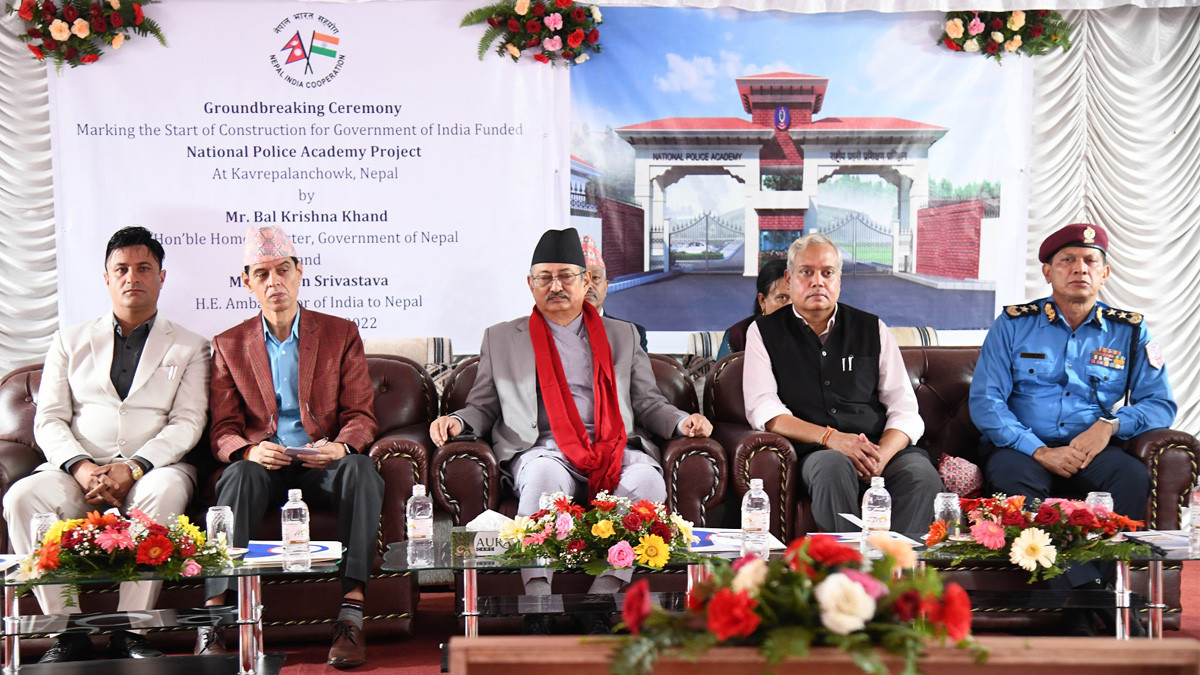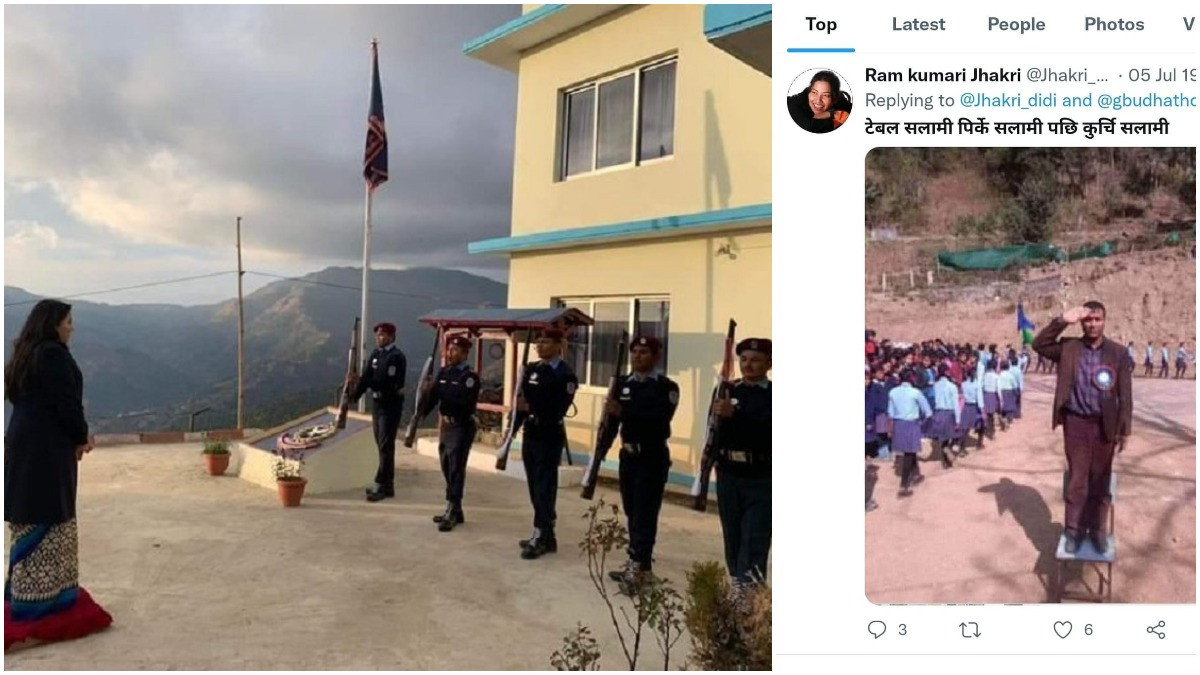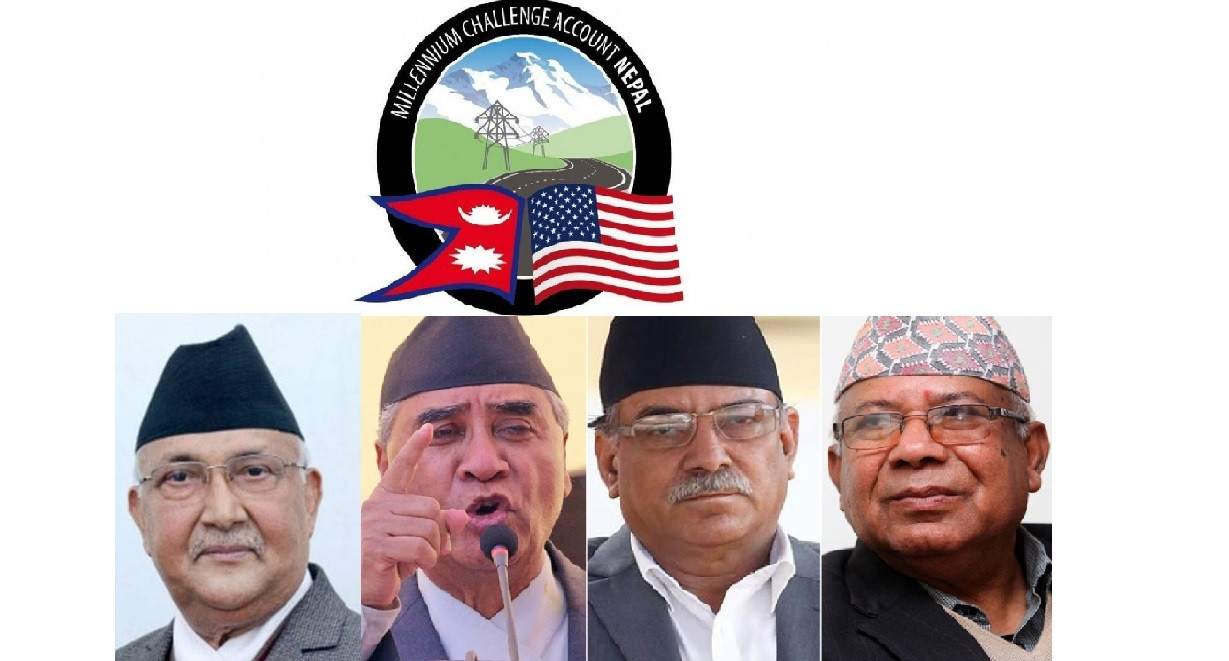
Debate over the ratification of the US support, Millennium Challenge Corporation (MCC) grant, has once again rippled through Nepali politics.
Prime Minister Sher Bahadur Deuba’s recent public statement about passing the MCC from House of Representatives by February has stirred rifts between the coalitation as many have started fearing that the current coalition will soon break.
The ruling Nepali Congress that is leading the government wants to pass the MCC. Opposition party CPN-UML, however, has kept some reservation about the MCC and have not either openly supported it or nor has it openly denied it. But, there is a clear dispute over the MCC within the ruling CPN-Maoist Center and the CPN-Unified Socialist Party , the senior leaders of which have openly opposed the MCC as it is.
With the divided opinion about MCC amongst political parties, Nepal has not been able to get assistance even though the agreement was reached with the US five years ago.
On the other hand, the US is clearly pressuring Nepal as it has not been able to pass the MCC even after a long time. But MCC has not yet made any public opinion on its behalf, awaiting Nepal's decision.
PM Deuba has been telling that Nepal could fall into the geopolitical trap of the US and China if the country would not ratify the MCC and accept its grant assistance as soon as possible. Deuba has also stressed that returning the MCC grant would give negative message to other development partners and other grants could be blocked as well.
Opposition parties, mostly fringe parties, however are loud and clear that passing the MCC on its current state would not be favorable for the country.
CPN- USP leader Jhala Nath Khanal for instant has made multiple public comment about MCC could do harm on nationality if passed from the parliament as it is. Khanal, who also led the high-level task force to study MCC said that there needs some correction in the MCC, however, the US side has not made any comments about it.
The three senior leaders of the coalition government; Deuba, Dahal and Nepal have intensified the meeting about ratifying the MCC as soon as possible.
No concrete agreement has been reached after the meeting. Leader Nepal following the meeting, however, said that the alliance will not be broken and will go together in the local elections as well. He also said that the Congress, UML and the UCPN (Maoist) are also engaged in informal dialogue on mutual cooperation if the MCC breaks the alliance.
If an agreement is reached between PM Deuba and the leaders of the coalition to pass the MCC, the alliance is unlikely to break up. For this, the Maoist center and the Unified Socialists also have to convince their disgruntled leaders.
However, if the Maoist center and the Unified Socialists are not ready, leaving the alliance and taking a vote of confidence may be another option. Although this is not easy, the main opposition CPN-UML may have an alliance with the Congress. Deuba can also extend the passage period of the MCC by requesting its head office. However, there are still chances that the MCC might not accept the offer.
MCC is not a confidential document: MCA Nepal
MCA Nepal, the government body implementing the MCC agreement in Nepal, has stated that the MCC is not a confidential document. Stating that there are misleading statements about MCC, MCA said that the documents related to MCC grant assistance are not confidential.
The MCA issuing a press release said that "Calling Environmental Impact Assessment (EIA) report, prepared by the government’s own body a confidential document is undermining government’s own agencies. Moreover, let us clarify that the called confidential documents is also not the part of MCC.”
What is MCC grant?
In 2017, the then Finance Minister Gyanendra Bahadur Karki had signed a 500 million grant agreement under MCC with the US. It agreed to upgrade a 318 km long 400 kV hydro electricity transmission line and a 300 km long highway.
The project will be completed within five years and the compact will be closed. MCC is cooperating in 24 countries in Africa, Latin America and Asia. Of these, 17 countries are in compact and threshold implementation and 10 countries are in developing agreement.
Millennium Challenge Account (MCA) Nepal is going to build a high capacity transmission line on the basis of the master plan prepared by the Nepal government with the aim of easily addressing the electricity demand of major cities of the country.
In particular, the construction of transmission line has been given top priority with the aim of providing easy supply of electricity and laying the foundation for economic prosperity in Kathmandu Valley, Pokhara in Kaski district, Narayangarh, Bharatpur and Butwal and surrounding areas.
The government has already prepared a master plan for the transmission line to be constructed in the country. The Millennium Challenge Corporation is going to provide assistance to two important projects as per the request of the government for the construction of transmission line in the central part of the same master plan.
The transmission line starting from Nanglebhar in Kathmandu is connected to Ratmate in Nuwakot. From Ratmate, one section will go to Hetauda and the other section will reach Nawalparasi via Damauli of Tanahu. The MCC has also approved priority for the distribution of electricity and of strategic importance as per Nepali government request.


